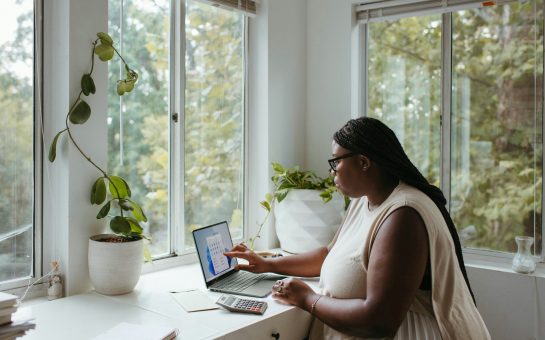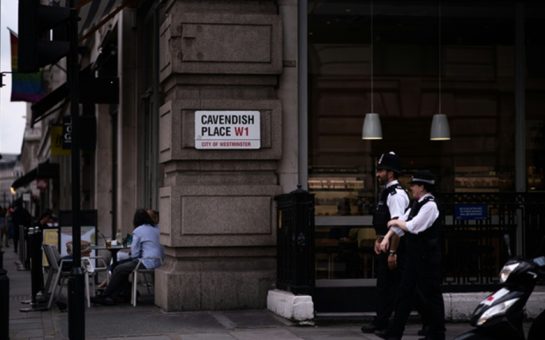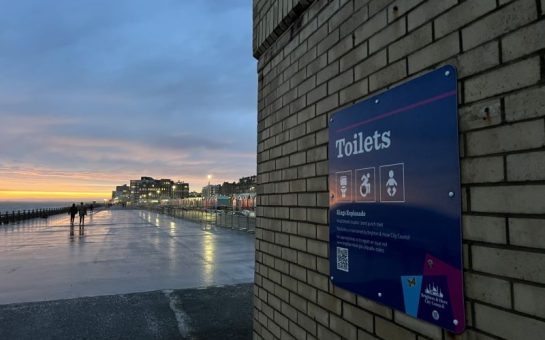May 7 2020, 09.10
Follow @SW_Londoner
Even astrologers need insurance.
When your job involves predicting the future, one can never be sure what will happen.
The promise of coverage at competitive rates is one of the many earthly benefits offered by The Association of Professional Astrologers International (APAI), an organisation for graduates of a select number of approved astrological institutions around the world.
Aspiring members need to be seriously committed to their celestial calling. A foundation course at one APAI endorsed institution, the Faculty of Astrological Studies, costs more than £900 and requires a commitment of up to 18 months to complete.
A hierarchy of skill is keenly perceived in certain spheres of the astrological industry.
As the APAI asks: “Would you consult a doctor, lawyer or other professional who was not qualified, not to mention inexperienced and uninsured?”
Like widely-recognised professional associations, the APAI has its own trade publication The Astrological Journal. The topic of the May/June 2020 edition: ‘EARTH IN LOCKDOWN: THE ASTROLOGY OF COVID-19’.
Past the introductory advert for a high-tech astrology app (now complete with cloud storage capabilities) is the lead story: a republished 2011 essay by French astrologer André Barbault, predicting a pandemic in 2020.
Editor Victor Olliver said: “I take that to be a very good example of how astrology can work when it’s practiced seriously. ”
Victor, 62, is an editor, astrologer and former journalist from Lancing, West Sussex, who’s interviewed the likes of Elizabeth Taylor and Gore Vidal. He has a special dislike for anyone anti-astrology and believes being a Gemini can help explain his successful writing career. He’s well adapted to battling the criticism surrounding his field.
The conjunction of Saturn and Pluto in Capricorn on January 12th this year was a hot topic in the astrological community.
“It tends to indicate that there’s going to be a crisis,” explains Victor.
Nearly 4000 likes for this tweet and a third of a million impressions. Sorry about that @ProfBrianCox https://t.co/ztfNc8jE2p
— Victor Santo Olliver (@VictorOlliver) March 22, 2020
Pauline Gerosa, 69, a fellow astrologer from Kent, agrees the coronavirus was written in the stars.
She said: “Any astrologer worth their salt was expecting something very big to happen right now. We weren’t quite sure where it was going to come from.
“But of course now that it’s here it makes perfect sense.”
Victor mentions how the same astrological conjunction occurred in 1914 during WW1 and in 1982 amidst the AIDS crisis. These unprecedented times have celestial precedent – if you look selectively enough.
Victor says enquires on his website, which offers Zoom readings for £75, have recently tripled.
He explains: “The funny thing is I’ve never been busier. That’s the irony of all this.”
Pauline believes the internet aligns with the profession on a deeper level. “Astrology is a kind of multi-dimensional language and, obviously, when you start working on the internet you are kind of going multidimensional.
“I think that’s why they work so well together.”
Whatever its dimension, the internet has certainly helped increase access to astrology in recent years, and is channeling an audience receptive to its ideas.
A 2015 YouGov survey showed 8% of people in Britain still believed horoscopes can inform you about the future and 20% thought a star sign could tell you something about yourself or another person.
A wave of astrological apps have put a modern edge on the ancient pseudoscience.
One of the biggest players is Co-Star. Launched in 2017, the New York-based company uses NASA data and cutting edge technology to generate what it calls “super-accurate horoscopes”.
Despite her overall agnosticism towards astrology, Hayley Jordan, 28, has found herself turning to the app more frequently since coronavirus hit the UK.
“I read the reading. I don’t believe the world or the universe is run by the alignment of the planets – of course not.”
Hayley, who suffers from generalised anxiety disorder, finds the virtual horoscopes useful, no matter the truth of their claims.
“It helps me ground myself in my thoughts and feelings today rather than my concern for the future.”
Astrology may best be described as a service of soothing generalisations with huge divides in the intricacies and skill that went into their creation.
Though it had plenty of adherents of varying commitment before coronavirus, its broad and predictive elements are well served by a society in need of approximations of certainty.
Or, as Victor puts it: “Astrology tries to explain why things are happening and what will happen as a trend. Not that you’re going to meet a tall dark stranger in Tesco’s next week.”




